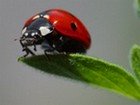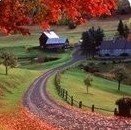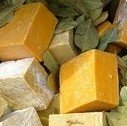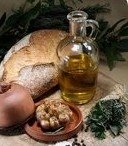composting and fertilizer
I was wondering, if you are using compost or fertilizer on crops, why you couldn't continue planting in the same spot.
Wouldn't the compost keep crops from making the ground unsuitable?
***************************************************
Hi,
Firstly, compost and fertilizer have 2 completely different jobs when planting crops.
Compost helps improve the structure of the soil as well as your soil's fertility. Your aim is to put back organic matter into the soil that often is only there in small quantities.
If you have ever visited a natural forest the leaves drop where they fall and decompose very slowly back into the soil feeding the roots of the trees they surround. This is natures way of composting.
If you take the time to dig a little deeper on the forest floor you will be surprised at the friable, dark, earthy soil that lies just beneath. It is this soil that one is trying to replicate in the composting process, but just doing it a little quicker.
Compost is a valuable soil changer it is not a fertilizer. Additional fertilization may be necessary to obtain acceptable growth and yields.
Where you have intensive agricultural use of a particular piece of land, you will need to have a plan to replenish this exhausted land with plenty of compost. You need to strive to create the perfect soil for your crops.
The ideal soil contains roughly: 45% minerals (particles), 25% water, 25% air and 5% organic matter. Humus in the organic component allows the soil to retain this large percentage of water.
Therefore, you need to know the type of soil you have before adding compost to create the perfect soil. If you have clay soil, add 16 cubic feet per 100 square feet of soil.
If you have sandy soil, add 24 cubic feet of compost per 100 square feet of soil.
Always have your soil tested before adding fertilizers, even organic or slow-release fertilizers. By having your soil tested you will know exactly what elements are missing and what needs to be replenished.
Soils are usually rested between crop productions and crop rotation is important if you want to lessen exposure to soil-borne diseases and sustain soil fertility.
Crop rotation helps cleanse, protect and replenish the soil fertility, especially if a legume cover crop is grown during the rotation. A legume cover crop will add the necessary nitrogen back into the soil without the need for artificial nitrogen fertilizers.
Just because you have a composting program doesn't mean that you can continue to grow your crops year after year in this soil unless you adopt a complete system that allows for this, called Bio-intensive farming.
Bio-intensive farming does involve crop rotation, but its main aim is to grow crops in the same soil that has been composted with both carbon and nitrogen plants. Both these types of plants are grown on the property, so that they can be used for the compost heap.
It is a complete system of farming that involves double digging of the soil, using open-pollinated seeds, close planting, companion planting and other aspects that allow one to produce more food per square meter than traditional methods.
It is a system that does allow you to grow crops intensively in well-composted soil as you suggest. So if you are interested in learning more I suggest you do some research on John Jeavon's method that is gaining popularity with many both in the USA and abroad.
Regards
Countryfarm Lifestyles
Did you find this page helpful?
Sharing is a way of saying, "Thanks!"
Follow Us and Keep Up to Date
Go back to the Home Page





